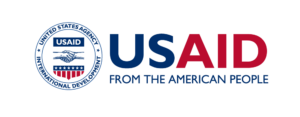From 30 July to 3 August, MapAction again participated as an official observer at the annual meeting of the United Nations Committee of Experts on Global Geospatial Information Management (UN-GGIM) at the UN headquarters in New York. This year, MapAction’s chief executive Liz Hughes attended. Liz also took part in discussions at a meeting on Geospatial Information and Services for Disasters that took place as part of the congress.
Now in their eighth year, these meetings provide a great opportunity to network and exchange ideas with different national and international organisations, to advocate for better quality and sharing of data during emergency responses and to look for potential supporters to help us achieve our mission.

Connecting SDGs and humanitarian responses
In 2017 the Committee of Experts adopted a new Strategic Framework on Geospatial Information and Services for Disasters, which aims to prevent or reduce the human, socioeconomic and environmental risks and impacts of disasters through the use of geospatial information services. “This is important because it represents a new level of joined-up thinking relating to international development, as outlined by the Sustainable Development Goals, on the one hand and humanitarian emergency response efforts on the other,” said Liz. “Development and humanitarian response do affect each other significantly, but historically they have not been all that well interconnected in terms of coordination between the relevant actors. So the adoption of this new Framework is very good news.”
The UN’s Economic and Social Council is now encouraging member states, the United Nations system, international organisations, donors, the private sector, academia and non-governmental organisations with responsibility for disaster risk reduction and management to adopt the new Strategic Framework, recognising that disaster risk reduction and management requires the commitment and cooperation of all stakeholders.
MapAction’s work is closely aligned with the goals of the Framework, which include making quality geospatial information and services available and accessible in a timely and coordinated way to support decision-making and operations within and across all sectors and phases of disaster risk management.
MapAction’s participation in UN-GGIM is made possible thanks to the generous support of the U.S. Agency for International Development as part of a programme to improve the use of geospatial analysis and services across the entire humanitarian response sector.
the entire humanitarian response sector.
